Prosperity must be for all, not only for a select few. And for us to flourish, we must address the climate crisis.
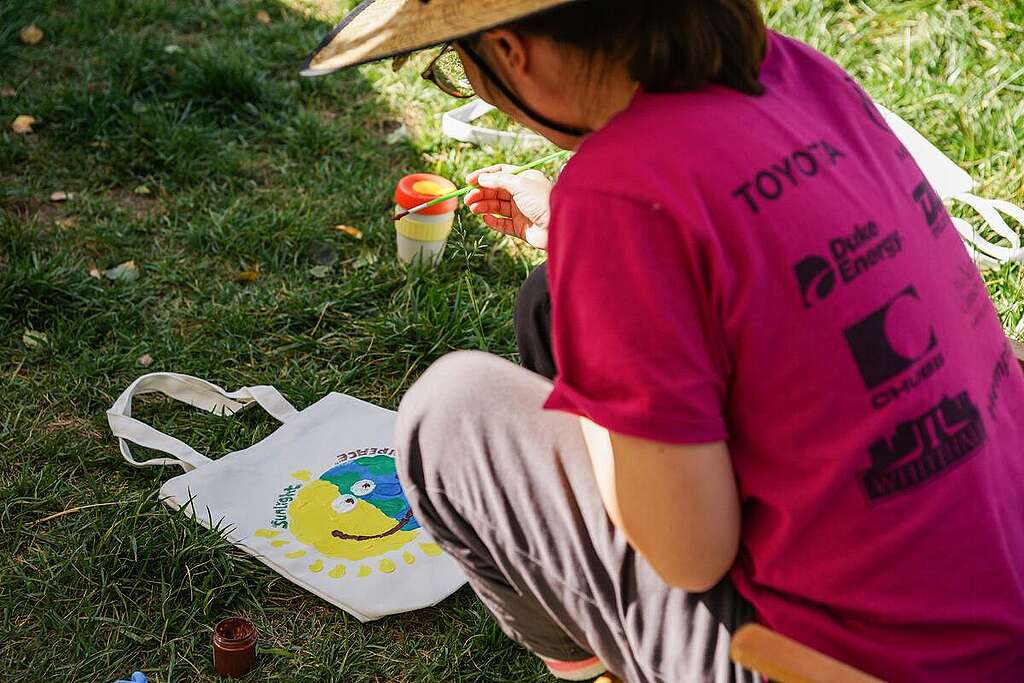 In recent years, camping in China has grown from a niche outdoor sport to a nationwide leisure activity, becoming the first choice for many people to get close to nature. In September 2022, Greenpeace Beijing office and Yizhang Camplus, a new outdoor lifestyle platform, held a camping-themed crossover workshop. Participants with different industry backgrounds explored the natural environment around the campsite with the nature tutors and had brainstorming on the Forest Positive Camping Kit (Beta Version). By connecting forest issues with popular public interests, we hope to make more people aware of the benefits of a good natural environment to our daily lives, and inspire the public to take action to protect forests. © Greenpeace / Yan Tu
In recent years, camping in China has grown from a niche outdoor sport to a nationwide leisure activity, becoming the first choice for many people to get close to nature. In September 2022, Greenpeace Beijing office and Yizhang Camplus, a new outdoor lifestyle platform, held a camping-themed crossover workshop. Participants with different industry backgrounds explored the natural environment around the campsite with the nature tutors and had brainstorming on the Forest Positive Camping Kit (Beta Version). By connecting forest issues with popular public interests, we hope to make more people aware of the benefits of a good natural environment to our daily lives, and inspire the public to take action to protect forests. © Greenpeace / Yan TuThe climate crisis is the result of greed — of the biggest industrial corporations amassing wealth through destructive ways that continue to hurt the planet and the people living in it. For centuries, drilling fossil fuels have been framed as essential to economic growth, wealth abundance, and prosperity — but this prosperity is only felt by the richest 1%. For the rest of us, everyday is a test for survival.
This notion of prosperity that corporations have created has never been sustainable. While oil and gas companies gain more profits, many suffer from the consequences of burning fossil fuels and other climate impacts. And despite urgent calls from affected communities, Big Oil continues to lie about the damages they have caused to the environment.
We are in a fossil-fuel driven climate chaos. Last year was the hottest year on record, and we have seen unprecedented weather disasters that have claimed the lives of millions. Typhoons have swept through homes in various parts of the world, flooding has ruined communities, and droughts are exacerbating food scarcity.
In Asia, extreme weather events like heat waves have threatened access to food, health, education, and energy. During the 2022 heatwave in China, wildfires damaged some parts of the Jinyun Mountain in Chongqing, China, destroying indigenous biodiversity. And cultural heritages are also at risk. Ancient relics that have survived wars and revolutions are now eroding because of extreme humidity.
 Cave images for Vanishing Point Report in China © Greenpeace East Asia
Cave images for Vanishing Point Report in China © Greenpeace East Asia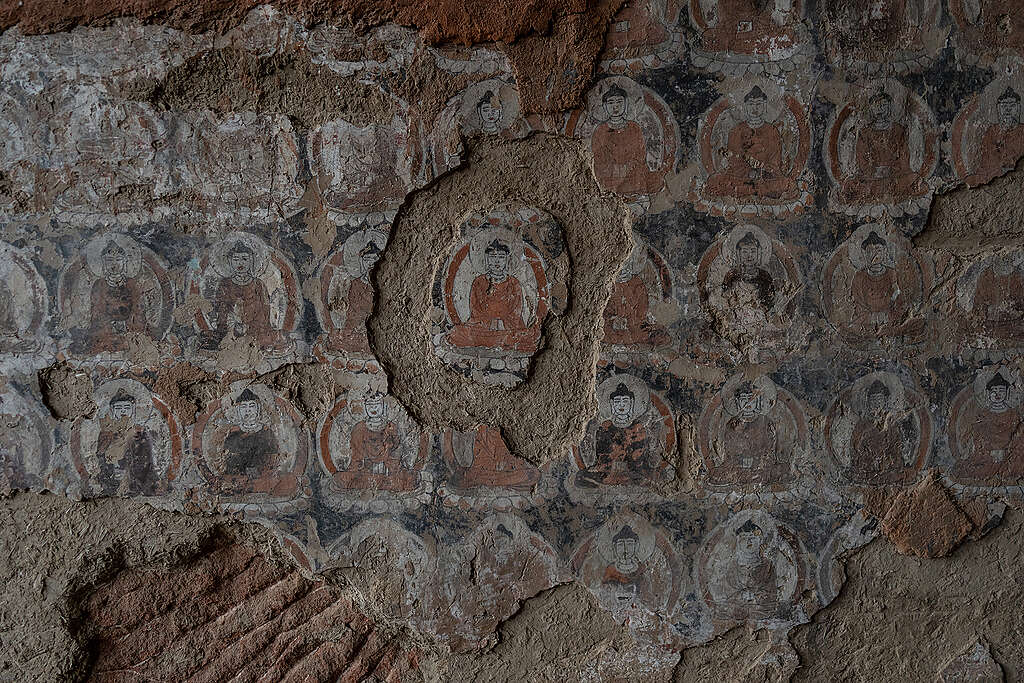 Crumbling and detachment on a mural in the Eastern cave of the Jinta Temple, where the base layer has been exposed. Reinforcement techniques have already been applied to the edges of the mural. © Greenpeace East Asia
Crumbling and detachment on a mural in the Eastern cave of the Jinta Temple, where the base layer has been exposed. Reinforcement techniques have already been applied to the edges of the mural. © Greenpeace East AsiaChina has been aiming to realize their goal of ‘common prosperity’ that aims to strengthen social equality and economic equity. But with China continuing to pursue new coal approvals, this would only fuel the worsening climate crisis, which would further widen the gap between communities that are impacted and the richest 1%. For prosperity to be sustainable, it should be grounded in nurturing the environment, prioritizing the well-being of people, and protecting our culture. We can start by addressing the climate crisis.
The good news is that communities around the world are already taking action.
What can we do to achieve real prosperity?
We can seek inspiration from stories of unity and resilience during the Chongqing wildfire. Thousands of citizens from different walks of life immediately volunteered to help firefighters extinguish fires that devoured the Jinyun Mountain.
One of these remarkable heroes is Wu Puhui. Wearing her helmet tied with a red bow, she braved the heat and flames to deliver supplies to hard-to-reach areas of the mountain for several days. You can read more about her story here.
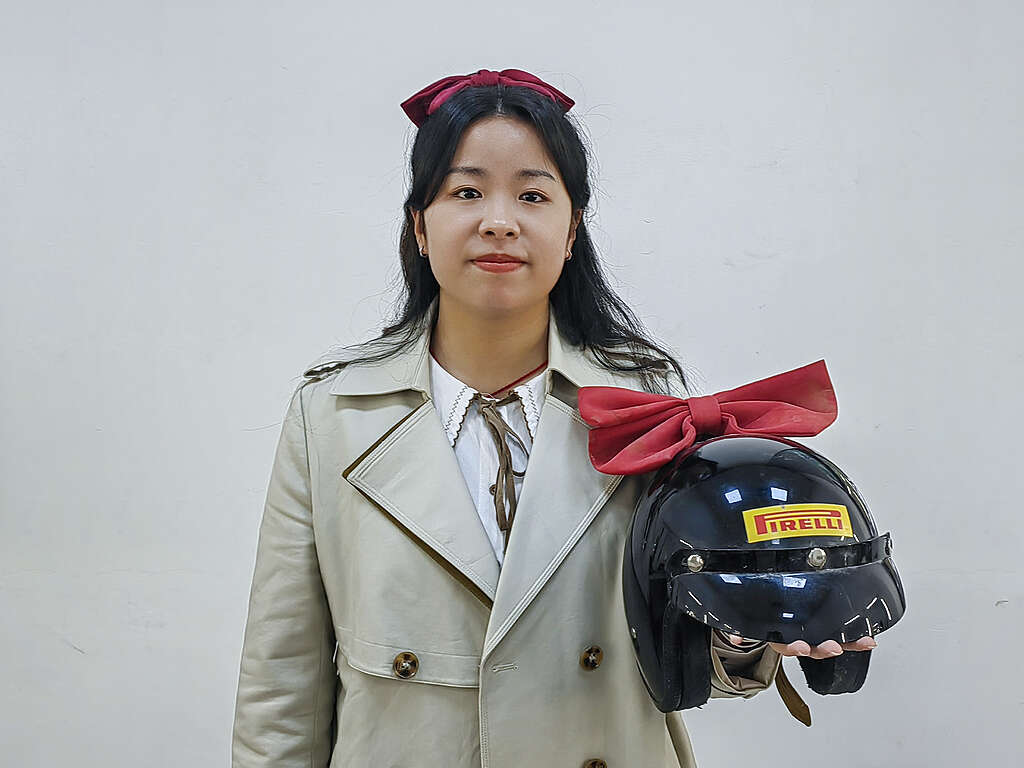 Wu Puhui carries her helmet tied with a red bow that she used during the fire rescue mission to help firefighters extinguish the mountain fire in Chongqing. © Greenpeace East Asia
Wu Puhui carries her helmet tied with a red bow that she used during the fire rescue mission to help firefighters extinguish the mountain fire in Chongqing. © Greenpeace East AsiaFrom her story of courage and heroism, we learn how transformative the power of solidarity and collective action is in creating change for a better planet.
How can you foster collective action?
Now is the best time to get started! Here are a few things that you can do:
Listen and join climate conversations
By taking part in climate conversations, not only can you gain new perspectives about the impacts of climate change, it can also open avenues for solidarity and community. You can find like-minded individuals from your local community or from other parts of the world whom you can collaborate with.
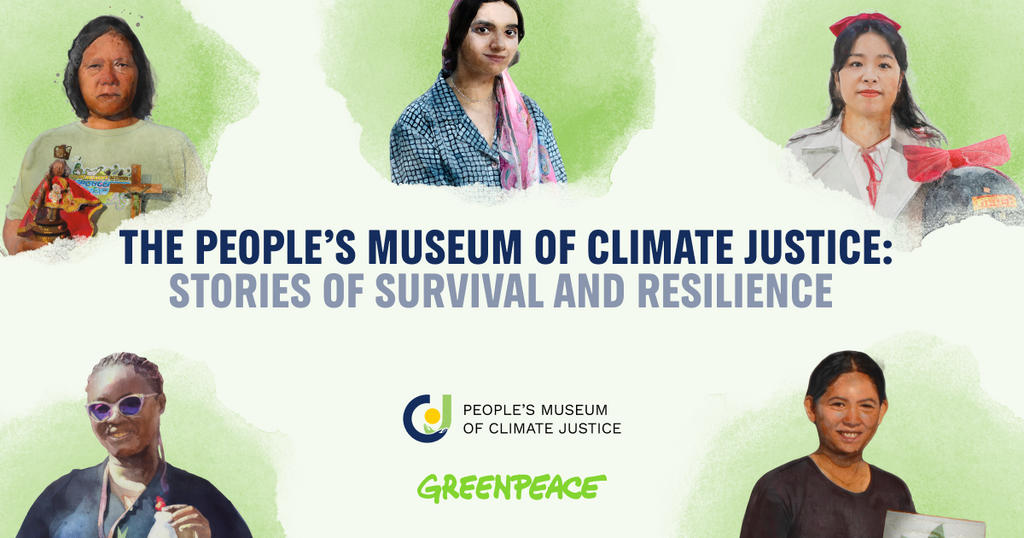 The People’s Museum of Climate Justice compiles stories from communities all over the world who are gravely affected by the climate crisis. © People's Museum of Climate Justice
The People’s Museum of Climate Justice compiles stories from communities all over the world who are gravely affected by the climate crisis. © People's Museum of Climate JusticeThe People’s Museum of Climate Justice is a platform to gain deeper insights about the impacts of climate stories. It features stories of resilience from people in different parts of the world. There are also emerging climate podcasters like Vistopia you can listen to for a more extensive and deeper knowledge about what you can do to mitigate climate change.
Support and amplify campaigns for climate policies
Join campaigns that will help your local decision-makers create better policies to provide long-term solutions and address root causes of climate crises such as adaptation & mitigation policies.
To protect cultural heritage in China, Greenpeace East Asia is now calling for stronger legislation that would factor in climate change as a source of disaster risk.
Make polluters pay for loss and damage
Oil and gas companies have fueled the climate crisis. However, the ones who are footing the bill for climate destruction are communities and individuals who contributed the least to climate change.
With climate disasters getting more destructive, damages and losses communities acquire go beyond their capability to recover, adapt or mitigate. Meanwhile, big oil corporations continue to drill and profit from their extractive activities.
Hence, Greenpeace and other climate advocates urge polluters to stop drilling and pay for the damages.
You can amplify these by adding your name to the petition.
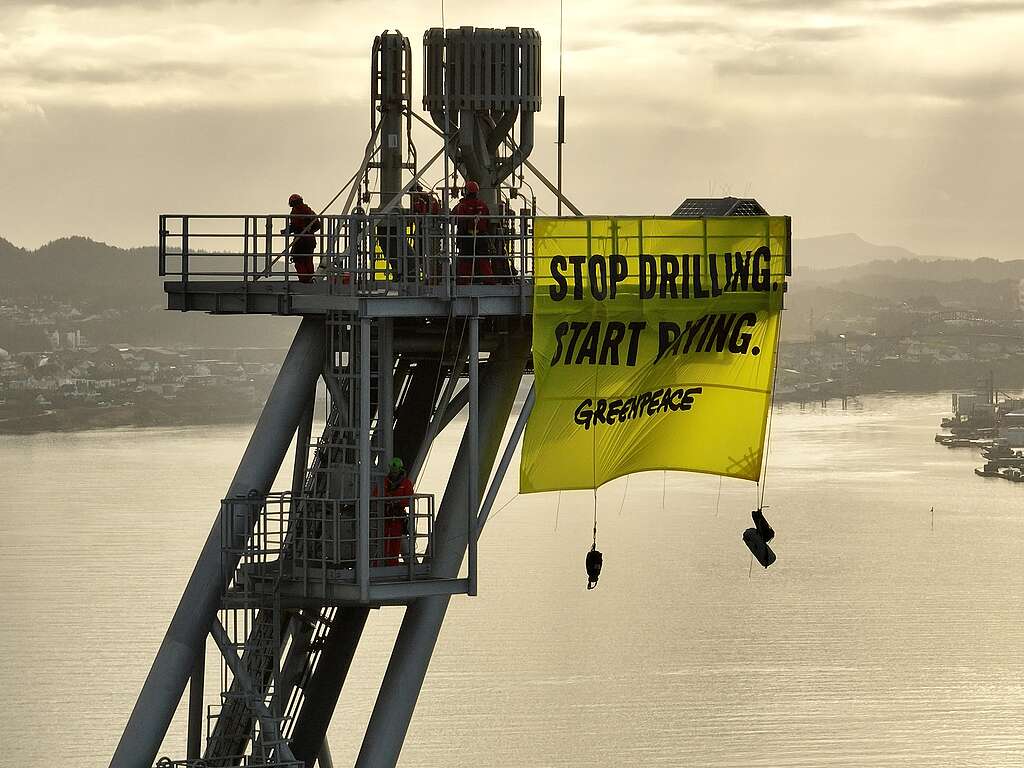
Call on leaders to stop all new fossil fuel developments, to commit to a rapid and fair phase out of fossil fuels, and to make polluters pay for their destruction and harm caused.
These are just some of the ways that you can help achieve prosperity for all. What are other ways that you can think of? Let us know by leaving a reply below!

 2 months ago
221
2 months ago
221

